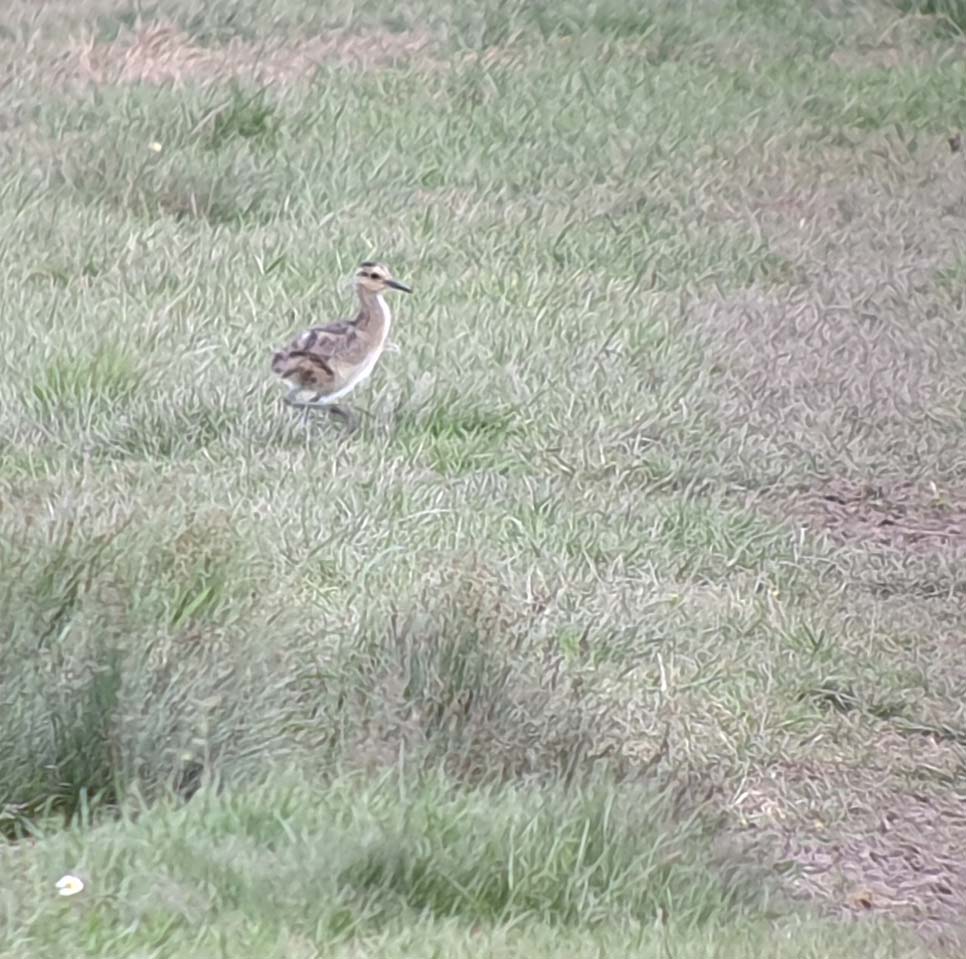Curlew hope and other news

It's been quite a day here on the reserve, we've all been busy on various tasks one of which was an wader monitoring session starting early this morning. The forecast was for warmth and sunshine so we planned a survey for the more remote and difficult to reach parts of the reserve. We found our 9 and 10th pair of Lapwing still with young, very pleasing despite some predation in key areas. At least five pairs of Redshank have young (so far), three broods of Oystercatcher still have young and to top things off our only pair of breeding Curlew finally gave us a view of their four chicks.
This pair nested last year which was a first breeding attempt in our memory, no breeding records for 1945-2017 although a pair did linger on part of the reserve in previous springs. They may have bred before WW2 with changes to the land causing them to give up on this area. Last year the nest was monitored until the day they hatched, it ended in heartbreak, a tidal surge on the Severn estuary flooded much higher than was expected, the nest and young was lost. It was a huge blow not just for the birds but for us as well.
Thankfully the pair returned this year and settled down to nest, the nest site was located and we kept an eye on progress, majority of visits were made before or after working hours. The hatch date arrived and the pair went silent and became elusive. No young could be seen in the long grass. Just over a week or so ago the female was seen to sit down in long grass, we suspected another breeding attempt but they began calling more and were easier to find. Today whilst looking out for them a brood of four chicks was seen, the adults are doing a great job of looking after them as they roam through the tall grass. The chicks appear to be around two weeks old so we still have a long way to go before we can fully celebrate, predators and weather could still play a part in this story but for now we are delighted with how far they have got with their young.
WWT is committed to the conservation of this rapidly declining species, we've seen a huge drop in numbers in recent years and they are in real danger of following other Curlew species that have become extinct (Slender-billed and Eskimo Curlew). Work behind the scenes is underway to help lowland Curlew before it's too late. This WWT Slimbridge pair gives us hope.
See here for a short clip of them
https://twitter.com/slimbridge_wild?ref_src=twsrc%5Egoogle%7Ctwcamp%5Eserp%7Ctwgr%5Eauthor
During the wader survey I spotted a Turtle Dove as it flew along the seawall towards Purton/Old Duck Decoy, this is another species that used to breed here but has become extinct as a breeding bird in the county. It is also in danger of becoming extinct globally. I hope that this is not the last one I ever see on the reserve.
The third highly notable sighting today was a Garden Warbler seen carrying food, this species is scarce here in Spring a breeding record is not only welcome but very rare.
Other sightings included..
Rushy Hide
Little-ringed Plover and Mediterranean Gull among the Avocets and Black-headed Gulls. This is another place where Gadwall are gathering to moult.
Tack Piece
A flock of Barnacle Geese were joined by numbers of Shelduck over high tide. Single Wigeon, Little Egret and 4 Avocet fed in the scrape.
Middle Point
A 1st summer Knot, small flock of Ringed Plover and Dunlin, 21 Curlew and the waders with young at high tide. A 3cy Yellow-legged Gull (first of the summer) was among the Herring and Lesser Black-backed Gulls.
South Lake
Little-ringed Plovers were nest scraping, at least two Avocet nests and 44 Black-tailed Godwit on the scrape. A drake Teal and Pochard was notable for this time of year.
Zeiss Hide/Top New Piece
The second calendar year Spoonbill was roosting with plenty of Avocets, Lapwing, Redshank and Shelduck over the tide.
Kingfisher Hide
Cuckoo singing along the line of willows and 2 Crane, 6 Redshank and two male and a female Teal on the flood.
M.J.McGill



